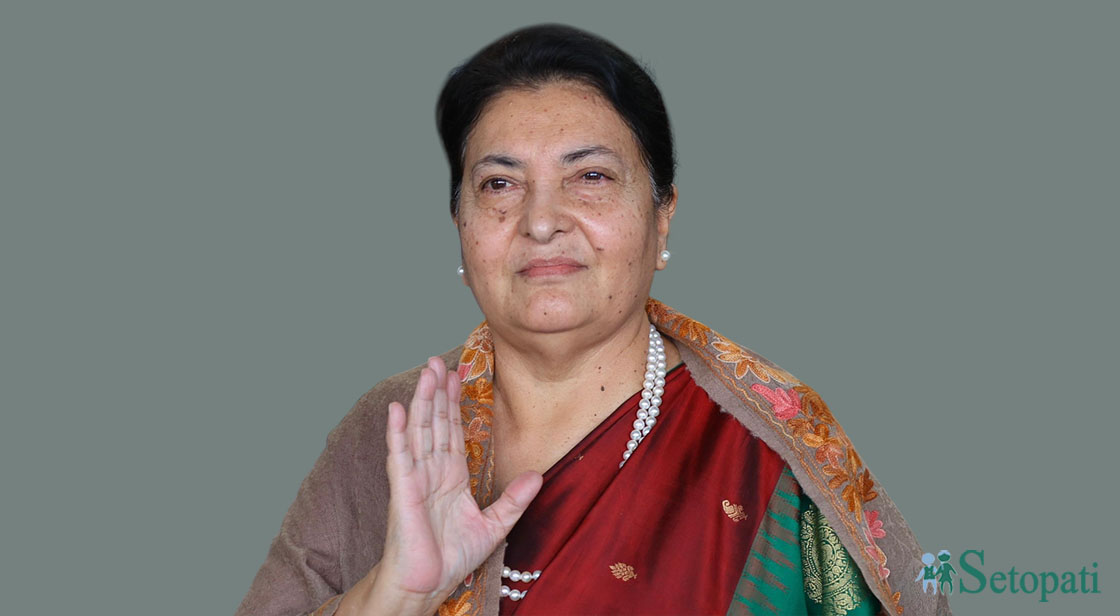On the eve of the CPN-UML statute convention, the faction led by former president Bidya Devi Bhandari has registered a note of dissent on four issues.
Standing committee member Karna Thapa registered the note of dissent at the UML central office on Thursday. Thapa is close to former president Bhandari.
The UML central committee had decided to prevent former president Bhandari from returning to party politics.
UML Senior Vice-chairman Ishwar Pokharel, Vice-chairman Surendra Pandey, and Yuvaraj Gyawali have been making statements expressing dissent against the central committee’s decision.
The UML’s second statute convention is set to begin on Friday in Godawari, Lalitpur. The Bhandari faction registered documents at the party office on Thursday to express dissent at the convention as well.
What are the points of dissent?
1. Democratization of party
The Bhandari faction has raised concerns about the removal of the 70-year age limit in the party and the restriction on serving more than two terms as party chair. The party had previously removed these provisions at the behest of UML Chairman KP Sharma Oli. Standing committee member Karna Thapa said that these provisions, which were already in practice, should not have been removed.
2. Party membership for Bidya Bhandari
The Bhandari faction has argued that since the Constitution and laws do not prohibit former president Bhandari from returning to politics, the UML should grant her party membership. Thapa said that party membership should be open to former presidents.
3. Machinations in appointments
The Bhandari faction has accused the party leadership of making appointments, such as ambassadors, based on personal discretion rather than through recommendations from party committees, as was the earlier practice under the state affairs department. It has called for an end to such machinations in appointments.
4. Leadership of sister organizations
The faction has criticized the growing trend of the party leadership appointing the heads of party organizations and holding their conventions, which it says stifles competition within the party.

